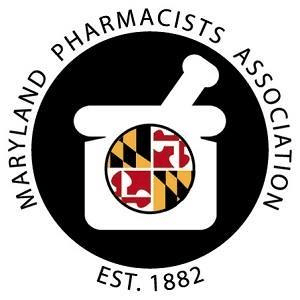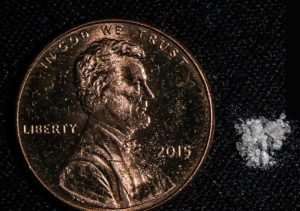HHS's Federal Action Plan for Drug Importation

On May 24, 2022, PSM held an online congressional briefing with a panel of experts to let legislators know why drug importation is a dangerous proposition. Watch briefing highlights or the entire event.
Current status:
The regulations took effect on November 30, 2020. PSM, PhRMA, and CAHC have filed suit in federal court to block them from taking effect.
On May 28, 2021 the Department of Health and Human Services filed a motion to dismiss the suit on the grounds that PSM, PhRMA, and CAHC did not have grounds to sue until the government had approved a state importation program.
PSM, PhRMA, and CAHC filed an amended complaint on July 2, 2021.
In the meantime, Colorado and Florida have submitted applications to begin state importation programs.
The State of Florida and Florida's Agency for Health Care Administration filed suit against the FDA and Department of Health and Human Services for delaying approval of its state importation program in August 2022.
Synopsis:
On September 24, 2020, the federal government released a Final Rule on Canadian drug importation (pathway 1), as well as Industry Guidance for manufacturer reimportation (pathway 2), and requests for proposals for waivers for individual prescription drug importation (pathway 3) and insulin reimportation programs (pathway 4) with an accompanying FAQ for the latter.
PSM, PhRMA, and CAHC have all filed suit against these regulations. You can read our joint announcement, our explainer about why we filed the litigation, and the complaint itself [PDF].
How should we evaluate this program?
Until July 2019, every head of Health and Human Services and the FDA since 2003 has refused to certify the safety of drug importation. Many—including Alex Azar, former FDA Commissioner and Trump appointee Scott Gottlieb, and his four immediate predecessors—have explicitly criticized these proposals as unsafe, unimplementable, and unlikely to save money.
HHS and FDA haven't implemented their proposals yet so there's no way to evaluate whether they save money or keep patients safe. However previous programs in Maine, Illinois, and Minnesota all shut down because they didn't save the money promised. They all had safety lapses as well.
Official Actions Since the Rule was Approved
June 1, 2021: Florida files an amicus brief in support of HHS's importation rule.
May 28, 2021: HHS files a motion to dismiss the suit.
November 23, 2020: PSM, Pharmaceutical Research and Manufacturers of American and The Council for Affordable Healthcare file a complaint alleging that the Final Rule disregards key protections of the Federal Food, Drug, and Cosmetic Act
Timeline of the approval of final rule for Canadian drug importation
September 24, 2020 - HHS published final rule for Canadian drug importation, as well as RFPs for personal importation waivers and and reimportation of insulin, and guidance for manufacturers who may choose to reimport their own drugs. (Links to those documents below, in Planning Documents.)
December 23, 2019 - March 9, 2020: HHS solicits comments about RIN 0919-AI45
July 31, 2019:
- HHS Announces New Action Plan to Lay Foundation for Safe Importation of Certain Prescription Drugs
- Remarks on the Safe Importation of Certain Prescription Drugs
August 6, 2019:
August 20, 2019:
- Florida submits a Canadian Prescription Drug Importation Concept Paper to HHS
Fall 2019:
- Office of Information and Regulatory Affairs posts RIN 0910-AI45, a draft of the proposed rule for the importation of prescription drugs.
Planning documents
Pathway 1, Wholesale Canadian Drug Importation: Final rule (PDF, 179 pages) and Redline (shows differences from December's draft rulemaking).
Pathway 2, Manufacturer Reimportation: Guidance for Industry
Pathway 3, Individual Waivers for Personal Importation: Request for Proposals
Pathway 4, Reimportation of Insulin: Request for Proposals and FAQ
Letter from HHS Secretary Alex Azar to House Minority Leader Kevin McCarthy certifying the final rule on wholesale Canadian drug importation, September 23, 2020.
HHS/FDA announces the Safe Importation Action Plan. July 31, 2019
Section 804 of the Food, Drug and Cosmetic Act which outlines the method by which the Federal government may import medicine from Canada.
Background / resources
Just learning about foreign drug importation proposals? Start with some of these resources that outline the safety issues.
PSM Materials:
- Learn about failures to save money and keep patients safe in previous importations programs in Maine, Illinois, and Minnesota.
- Every head of Health and Human Services and the FDA since 2003 has refused to certify the safety of drug importation
- Importation has been opposed by dozens of groups representing law enforcement, patients, regulators, and healthcare professionals for nearly two decades.
- Drug importation endangers U.S. patients by breaking our closed, secure drug supply
- Common misconceptions about drug importation
Challenges to importation:
- Canadian patient groups, healthcare groups, boards of pharmacy and the Canadian government have not agreed to importation.
- A 2018 study by PSM board member and pharmaco-economist Dr. Marv Shepherd shows that if 20% of U.S. prescriptions were filled using Canadian prescription drug sources, the Canadian drug supply would be exhausted in 183 days.
- Dr. Kristina Acri's analysis shows that importation programs are unlikely to save money because of the costs of testing medication and treating patients who encounter counterfeits.
- Importation breaks Track and Trace systems which have been in-process since 2013, when Congress passed the Drug Supply Chain Security Act.
- State Drug Importation Laws Undermine the Process That Keeps Our Supply Chain Safe (July 11, 2019)
- In February 2017, Alan Coukell, the senior director of health programs for the Pew Charitable Trusts wrote Senator Bernie Sanders, to raise concerns about the effect of importation on the pharmaceutical supply chain security provisions.
- To learn more about Track and Trace, consult the FDA and RXTrace
Coverage:
- Everything (or almost everything) you need to know about importing drugs from Canada, July 31, 2019
- Canada wasn’t consulted on specifics of U.S. plan to import prescription drugs, July 31, 2019
- U.S. demand is threatening Canada's drug supply, groups warn feds, July 26, 2019
- Exclusive: Canada warns U.S. against drug import plans, citing shortage concerns, July 18, 2019
- HHS Secretary Alex Azar dismisses drug importation as a gimmick, May 14, 2018
Op-eds from the Experts
More than 60,000 Americans died from drug overdoses last year. Fentanyl, a synthetic opioid 100 times more powerful than morphine, caused one-fifth of those fatalities. Local law enforcement and health professionals are working at a feverish pace to prevent fatal overdoses, yet at the same time, some federal lawmakers have proposed legislation that would make it legal to import drugs that are not approved by the Food and Drug Administration into the United States from questionable sources. Such legislation would provide a gateway for international criminal organizations to import counterfeit prescription drugs and deadly illegal opioids, including fentanyl…
Bill McCollum, former attorney general of Florida and member of Congress, wrote about the dangers of drug importation on August 8, 2017:
“Opening the door to increased prescription drug importation will just make it easier for smugglers to ship this dangerous opioid into the United States. For years, we have asked police officers and prosecutors to do more with less. There are few signs that austerity will end. Changing laws to encourage importation of drugs would only add to that burden.”
Terry W. Deese, Peach County, Georgia Sheriff and president of the Georgia Sheriffs’ Association, wrote this editorial for the Macon Telegraph. It was published on July 27, 2017.
“Georgia’s law-enforcement professionals and health officials are scurrying to stop the spread of these harmful pills. But in Washington, Congress may soon make it easier for counterfeit drugs like these — along with illicit prescription medicines — to enter the United States.
This effort doesn’t make any sense. Loosening restrictions on drug importation will worsen the opioid crisis.”
Brandon Macsata, the CEO of the AIDS Drug Assistance Program Advocacy Association, writes about the dangerous unreliability of imported medicines. (Originally published in the The Washington Blade and the ADAP blog.)
The bills before Congress would remove many of the license and oversight requirements on the drugs imported into the United States by lifting those barriers, inviting an influx of bogus pharmaceutical products from the same crime rings that are selling these drugs in other countries around the world that would love better access to the U.S. market.
Law enforcement would inevitably be tasked with policing the problem, at a time when most prosecutors and law enforcement officials have their hands full with the growing opioid crisis. One of the biggest killers is fentanyl, a potent, synthetic opioid pain medication that is being laced into counterfeit pills.
This editorial by Aliyah N. Horton, the executive director of the Maryland Pharmacists Association, was published in the Baltimore Sun on July 19, 2017.
In it, Horton points out the “huge public health risk” posed by buying imported drugs, and urges legislators to vote against unsafe drug importation, and to “seek other avenues to improve patient access, safety and drug affordability.”
In a July 14, 2017 editorial for STAT, Jim Greenwood, the president and CEO of the Biotechnology Innovation Organization (BIO), reminds us that the safety risks of buying prescription medicines from other countries are real:
“The debate about drug importation has been underway for decades. Those who support it have never advanced a responsible plan that would provide the same level of health and safety protections that the FDA has delivered for decades. Its rigorous system of rules and protocols ensure that prescription drugs in this country are safe and effective. It protects those high standards by preventing the sale of imported prescription drugs that are not approved for use in the U.S.”
A few years ago, Maine introduced similar legislation that allowed patients to buy drugs from foreign pharmacies. We, too, wanted to provide patients with lower-cost medicines.
It proved to be a big mistake. Instead of getting drugs from Canada, we got dangerous and ineffective counterfeit pills from other countries. Maine’s disastrous experience with counterfeit Canadian drug imports should serve as a lesson to our lawmakers to say no to drug importation legislation.
The Philadelphia Inquirer published this editorial by George M. Karavetsos, a partner with the global law form DLA Piper, and former director of the U.S. Food and Drug Administration Office of Criminal Investigations.
Proposed Drug Importation Law Will Worsen U.S. Opioid Epidemic
More than 60,000 Americans died from drug overdoses last year. Fentanyl, a synthetic opioid 100 times more powerful than morphine, caused one-fifth of those fatalities. Local law enforcement and health professionals are working at a feverish pace to prevent fatal overdoses. Even librarians in drug-plagued neighborhoods . . .
Investor’s Business Daily published this editorial by D. Wayne Taylor, Executive Director of the Cameron Institute, a not-for-profit, public policy think tank specializing in the independent study of health, social and economic issues both in Canada and around the world.








